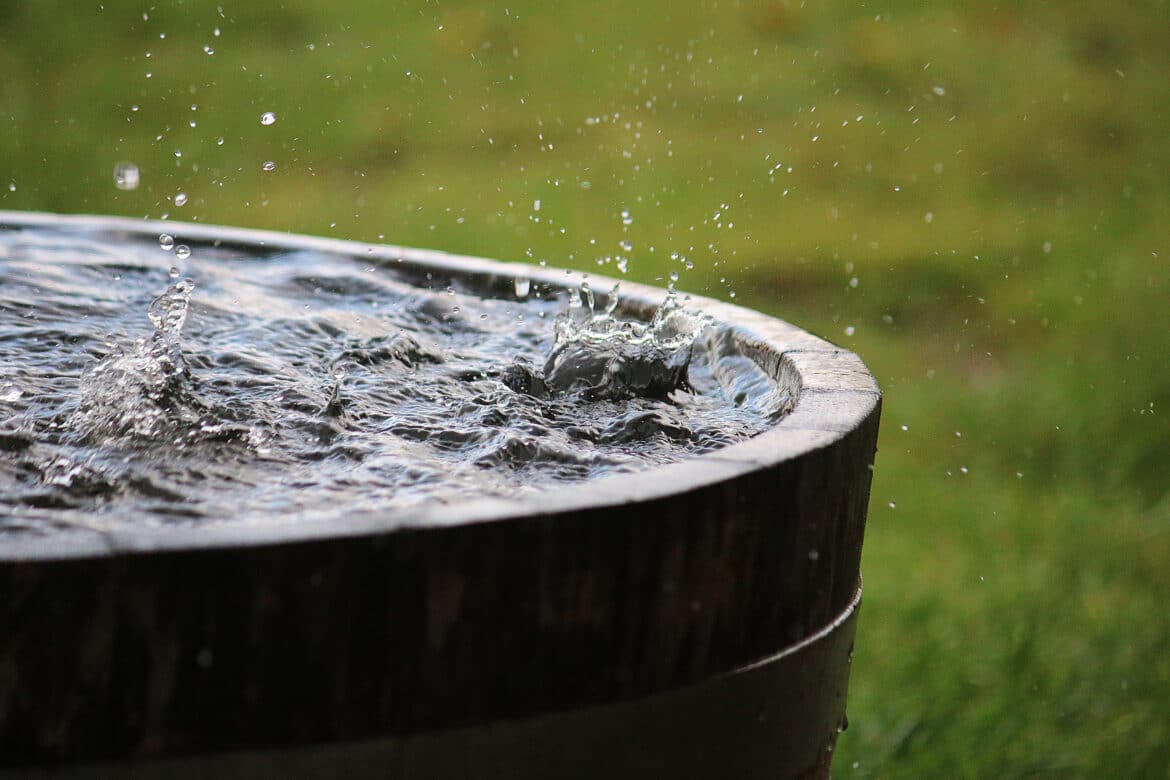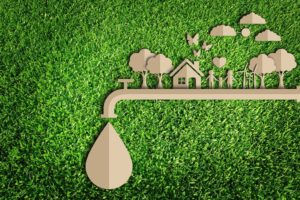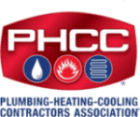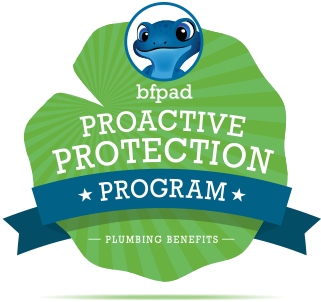
Top 10 Rainwater Harvesting Benefits
Water Conservation: Collecting rainwater helps reduce dependence on municipal water systems, which is particularly important during droughts or in areas with water scarcity.
Reduction in Water Bills: Utilizing harvested rainwater for gardening, flushing toilets, and other non-potable uses can significantly lower monthly water bills.
Decreased Energy and Resource Use: Less demand on municipal systems reduces the energy and chemicals used for treating and distributing water, contributing to environmental sustainability.
Improved Plant Health: Rainwater is free of salts and harmful minerals and it’s better for irrigation than tap water because it does not lead to soil salinization, promoting healthier plant growth and soil conditions.
Stormwater Runoff Reduction: Rainwater harvesting systems help mitigate the impact of runoff during storms, which can reduce erosion, water pollution, and the risk of flooding.
Enhanced Soil Moisture: Storing and using rainwater for irrigation helps maintain soil moisture levels, which is beneficial for crops during dry spells and reduces water wastage through evaporation.
Emergency Water Supply: Rainwater can serve as a backup water supply during emergencies, providing a crucial resource when public water systems are compromised.
Eco-friendly: By reducing demand on municipal systems and collecting rainwater, you’re helping to conserve natural resources and promoting a more sustainable ecosystem.
Community Resilience: Implementing rainwater harvesting systems can help communities become more resilient to climate variability by enhancing local water resources management.
Education and Awareness: Rainwater harvesting educates communities about the importance of water conservation and can inspire other sustainable practices.
Have you ever wondered how rainwater harvesting can benefit your home and environment?
Rainwater harvesting is an age-old practice that involves collecting and storing rainwater for later use. This simple yet effective method can transform how we manage water resources. From conserving water to improving soil health, the advantages are numerous and impactful.

Importance of Rainwater Harvesting
In today’s world, where water scarcity is becoming increasingly prevalent, rainwater harvesting is essential. This method not only provides an alternative water source but also supports sustainable living. With climate change and growing urbanization, it’s crucial to adopt practices that conserve our natural resources. Rainwater harvesting stands out as a practical solution, ensuring water availability for future generations.
Brief Overview of Benefits
Rainwater harvesting offers multiple benefits. It reduces dependence on municipal water supplies, lowers water bills, and helps in sustainable water management.
Additionally, it offers environmental benefits like reducing stormwater runoff and groundwater extraction. By improving water security and supporting gardens, rainwater harvesting promotes a healthier ecosystem. Let’s delve deeper into these benefits and see how they can positively impact our lives and environment.
-
Water Conservation
Did you know rainwater harvesting can significantly reduce your reliance on municipal water supplies?
One of the primary benefits of rainwater harvesting is its contribution to water conservation. By collecting and storing rainwater, you can decrease your dependence on traditional water sources, making your household more self-sufficient and eco-friendly.
Reduces Dependency on Municipal Water Supplies
Rainwater harvesting helps in minimizing the strain on municipal water systems. This is especially important during peak usage periods or droughts when water supplies can be limited. By using harvested rainwater for non-potable purposes like irrigation, toilet flushing, and laundry, you reduce the demand for treated water, preserving it for essential uses.
Helps in Sustainable Water Management
Sustainable water management is crucial for maintaining a balance between water supply and demand. Rainwater harvesting supports this by promoting the efficient use of natural resources.
Collected rainwater can be stored in tanks or underground cisterns, making it available during dry spells. This practice helps manage water resources more effectively, ensuring long-term availability and reducing the impact on local water bodies.
-
Cost Savings
Want to save on your water bills while being eco-friendly?
Rainwater harvesting is not only good for the environment but also beneficial for your wallet. By utilizing free rainwater, you can significantly cut down on your water expenses. This approach offers a smart, cost-effective solution for various household and garden needs.
Lower Water Bills
One of the most immediate benefits of rainwater harvesting is the reduction in water bills. By using harvested rainwater for daily chores such as watering plants, washing cars, and flushing toilets, you can decrease your reliance on expensive municipal water. This can lead to substantial savings, especially in areas where water costs are high or during times of water restrictions.
Cost-Effective Irrigation
For those who love gardening or have large landscapes, irrigation can be a major expense. Rainwater provides a natural, chemical-free source of water that is perfect for plants. Using rainwater for irrigation not only reduces costs but also promotes healthier plant growth. Since rainwater is naturally soft and free from salts and minerals found in groundwater, it’s ideal for plants, leading to a more vibrant and productive garden.
-
Environmental Benefits
Curious about how rainwater harvesting helps the environment?
This practice not only conserves water but also offers significant environmental advantages. From reducing stormwater runoff to decreasing groundwater extraction, rainwater harvesting contributes to a healthier and more sustainable planet.
Reduces Stormwater Runoff and Erosion
One of the key environmental benefits of rainwater harvesting is the reduction of stormwater runoff. When rainwater is collected and stored, it minimizes the amount of water that flows over the ground.
This helps prevent soil erosion, flooding, and the transport of pollutants into rivers and streams. By managing stormwater effectively, rainwater harvesting protects local waterways and the surrounding environment.
Decreases Groundwater Extraction
Rainwater harvesting also helps in reducing the dependence on groundwater. Over-extraction of groundwater can lead to a drop in the water table, affecting the availability of water for future use.
By using rainwater for daily needs, we can lessen the strain on groundwater resources. This sustainable approach ensures that groundwater reserves remain intact, supporting long-term water availability and environmental health.
-
Enhancing Water Security
Looking for a reliable water source during droughts?
Rainwater harvesting provides a dependable solution that can enhance water security. By storing rainwater, you can ensure a continuous water supply even during dry periods. This method is particularly beneficial in regions prone to water scarcity.
Reliable Water Source During Droughts
Droughts can significantly impact water availability, but having a rainwater harvesting system in place can mitigate this risk. Stored rainwater acts as a buffer, providing an alternative source when municipal supplies are limited. This ensures that essential needs like drinking, cooking, and hygiene can still be met, even during prolonged dry spells.
Improves Water Availability in Arid Regions
In arid and semi-arid regions, water scarcity is a constant challenge. Rainwater harvesting helps to improve water availability in these areas. By capturing and storing the limited rainfall, residents can access water for various uses throughout the year. This practice not only enhances their quality of life but also supports agricultural activities, which are crucial for local economies.
-
Support for Garden and Landscape
Want to promote healthier plants and landscapes? Rainwater harvesting is an excellent solution for gardeners and landscapers. It provides an ample supply of water that is ideal for irrigation, helping to maintain lush, vibrant gardens and landscapes.
Ideal for Irrigation
Rainwater is naturally free of the salts, chemicals, and minerals found in groundwater and municipal water supplies. This makes it perfect for irrigation. Plants thrive on rainwater, leading to healthier growth and more robust gardens. By using harvested rainwater, you can ensure your plants receive the best possible nourishment.
Promotes Healthier Plants and Landscapes
Using rainwater for your garden not only conserves water but also promotes plant health. Rainwater’s natural composition helps in maintaining the soil’s pH balance and reduces the risk of salt build-up, which can harm plants over time.
Additionally, regular use of rainwater can enhance the soil structure, making it more fertile and conducive to plant growth. This results in a more sustainable and visually appealing landscape.
-
Reducing Flood Risks
Concerned about urban flooding? Rainwater harvesting is an effective strategy for mitigating flood risks in urban areas. By capturing and storing rainwater, you can manage excess water during heavy rains, reducing the likelihood of flooding.
Mitigates Urban Flooding
Urban areas often face significant flooding issues due to impermeable surfaces like roads and buildings. Rainwater harvesting systems can alleviate this problem by capturing runoff and storing it for future use. This reduces the volume of water that overwhelms drainage systems during storms, thus minimizing flood risks and protecting infrastructure.
Controls Excess Water During Heavy Rains
During heavy rains, rainwater harvesting systems help control the excess water that can lead to flooding. By storing rainwater in tanks or cisterns, these systems prevent water from accumulating on the surface. This not only protects your property but also reduces the burden on local drainage systems, contributing to a safer and more resilient community.
-
Improving Soil Health
Did you know rainwater harvesting can improve soil health? Collecting and using rainwater can have a significant positive impact on the soil in your garden or landscape. This practice helps prevent soil erosion and enhances soil moisture levels, contributing to a more productive and sustainable environment.
Prevents Soil Erosion
Soil erosion is a major concern, especially in areas with heavy rainfall. By harvesting rainwater, you can reduce the amount of water that flows over the ground. This minimizes the risk of soil erosion, which can strip away valuable topsoil and degrade land quality. Using harvested rainwater for irrigation ensures that water is applied directly to the soil, reducing the force of runoff and preserving soil integrity.
Enhances Soil Moisture Levels
Rainwater is particularly beneficial for soil health because it is free of chemicals and salts found in treated water. When used for irrigation, rainwater helps maintain optimal soil moisture levels.
This promotes better root growth and improves the overall health of plants. Consistent use of rainwater can also enhance the soil’s structure, making it more porous and capable of retaining water, which is essential for sustaining plant life during dry periods.
-
Energy Savings
Did you know that rainwater harvesting can help save energy?
By reducing the need for water treatment and transportation, rainwater harvesting contributes to significant energy savings. This eco-friendly practice supports the use of renewable resources, promoting a more sustainable lifestyle.
Reduces Energy Used in Water Treatment and Transport
One of the key benefits of rainwater harvesting is the reduction in energy consumption. Treating and transporting water to households requires a considerable amount of energy.
By collecting and using rainwater on-site, you cut down the demand for treated water, thereby reducing the energy required for these processes. This not only lowers your carbon footprint but also contributes to overall energy conservation.
Promotes the Use of Renewable Resources
Rainwater harvesting aligns with the principles of sustainability by encouraging the use of renewable resources. Instead of relying solely on municipal water supplies, which can be energy-intensive, rainwater harvesting taps into a natural, renewable source. This practice supports environmental conservation efforts and promotes the responsible use of resources, helping to create a greener future for all.
-
Independence from Municipal Systems
Want to increase your self-sufficiency with water?
Rainwater harvesting provides a valuable backup water source, enhancing your independence from municipal systems. This practice ensures you have a reliable water supply even when public water services face disruptions.
Provides a Backup Water Source
Relying solely on municipal water systems can be risky, especially during emergencies like droughts, system failures, or natural disasters. Rainwater harvesting offers a dependable alternative. By storing rainwater, you ensure that you have an accessible water supply when municipal sources are unavailable. This can be crucial for maintaining daily activities and overall quality of life during unforeseen events.
Increases Self-Sufficiency
Being self-sufficient with your water supply not only provides peace of mind but also promotes a more sustainable lifestyle. Rainwater harvesting allows you to manage your water needs independently, reducing dependency on external sources. This self-sufficiency can be particularly beneficial in remote or rural areas where municipal water systems might be less reliable or harder to access.
-
Water Quality Improvement
Did you know rainwater is naturally soft and less contaminated?
Harvesting rainwater can lead to significant improvements in water quality for various uses around your home. This practice reduces the need for water softeners and provides a purer source of water for your everyday needs.
Rainwater is Naturally Soft and Less Contaminated
Rainwater is free from many of the contaminants and minerals that are commonly found in groundwater and municipal water supplies. This makes it ideal for a range of household uses. Its natural softness means it doesn’t carry the hard minerals that can cause scaling in pipes and appliances, leading to longer-lasting plumbing and fixtures.
Reduces the Need for Water Softeners
Because rainwater is naturally soft, using it can diminish the need for water softeners. Water softeners are often used to remove the minerals that cause hardness in water, which can be costly and require regular maintenance. By relying on rainwater, you can avoid these expenses and the environmental impact associated with the use of chemical softeners.
Rainwater Harvesting in Little Elm, The Colony, and Southlake
Curious about how rainwater harvesting benefits specific communities?
Little Elm, The Colony, and Southlake have embraced rainwater harvesting, showcasing numerous local initiatives and success stories. These communities have recognized the advantages of rainwater harvesting and are reaping the benefits.
Local Initiatives and Success Stories
In Little Elm, rainwater harvesting has become a popular practice among residents and businesses. Community workshops and local government programs have promoted the installation of rainwater harvesting systems.
One notable success story is the Little Elm Public Library, which installed a large rainwater harvesting system to irrigate its landscaping. This initiative has significantly reduced water consumption and set an example for other public buildings.
The Colony has also seen a surge in rainwater harvesting efforts. The city has partnered with local environmental groups to provide incentives and resources for homeowners to install rainwater systems. A remarkable example is the partnership with local schools, where students learn about water conservation through hands-on projects involving rainwater collection and usage.
Southlake, known for its upscale homes and lush landscapes, has integrated rainwater harvesting into its urban planning. The Southlake Garden Club has spearheaded efforts to promote rainwater harvesting among its members, leading to beautifully maintained gardens that rely on harvested rainwater. The city also offers rebates for residents who install rainwater harvesting systems, encouraging widespread adoption.
Specific Benefits for These Areas
In Little Elm, the benefit of rainwater harvesting extends beyond water conservation. The practice has helped manage stormwater runoff, reducing the risk of flooding in this rapidly growing community. Residents have also enjoyed lower water bills, thanks to the supplementary water source.
The Colony benefits from enhanced community awareness and engagement in environmental conservation. The city’s programs have not only reduced municipal water usage but also fostered a sense of environmental stewardship among residents. The involvement of schools has educated the younger generation about sustainable practices, ensuring long-term benefits.
Southlake’s focus on integrating rainwater harvesting into urban planning has created a more resilient community. The availability of rainwater for irrigation has ensured that the city’s beautiful landscapes remain lush even during dry periods. The financial incentives provided by the city have made it easier for residents to invest in these systems, contributing to overall water security and sustainability.

FAQ
- What are the common concerns about rainwater harvesting?
Common concerns include the initial cost of installation, the space required for storage tanks, and the maintenance of the system. However, these concerns can be mitigated with proper planning and by taking advantage of local incentives and resources.
- Is rainwater harvesting legal in my area?
In most places, including Little Elm, The Colony, and Southlake, rainwater harvesting is legal and encouraged. However, it’s always best to check with local authorities for any specific regulations or requirements.
- How do I maintain a rainwater harvesting system?
Regular maintenance includes cleaning the catchment area (e.g., roofs), checking and cleaning gutters and downspouts, and ensuring that storage tanks are free from debris and pests. It’s also important to inspect the system for leaks and to clean filters and screens periodically.
- Can rainwater harvesting systems be used for drinking water?
While rainwater can be used for drinking, it requires proper filtration and treatment to ensure it is safe. Many systems are designed primarily for non-potable uses, such as irrigation, toilet flushing, and laundry.
- What are the costs associated with installing a rainwater harvesting system?
Costs can vary depending on the size and complexity of the system. Simple barrel systems can be relatively inexpensive, while larger systems with multiple tanks and advanced filtration can be more costly. However, the long-term savings on water bills and potential rebates can offset the initial investment.




















